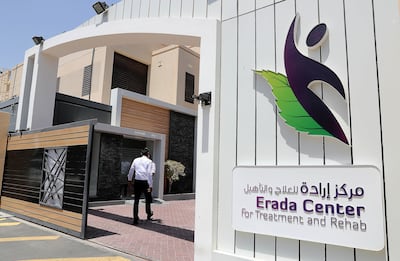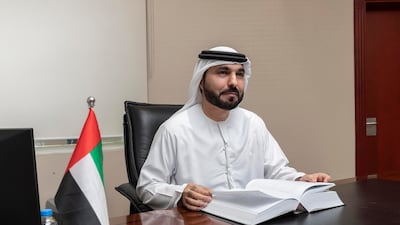Landmark changes to the UAE's legal system that prioritised rehabilitation over punishment for first-time drug offenders continue to reap rewards five years after being introduced, a senior Dubai prosecutor said.
Mohammed Ali Rustom, Dubai's Advocate General and the head of Family and Juvenile Prosecution, said numbers of drug cases involving young people continue to decline, due in part to a key move to encourage people to seek treatment.
In October 2016, the attorney general provided alternatives to custodial sentences, including the power to send first-time offenders to rehabilitation centres, on the advice of police and prosecutors, without cases going to court.
Dubai prosecutors dealt with nine drug cases involving teenagers last year, down from 16 in 2019.
Dubai's Advocate General
In the first half of 2021, only four such cases were investigated by prosecution teams in the emirate.
“Several factors contributed to this drop, one is the law being more active by allowing those who willingly approach authorities, to avoid prosecution,” Mr Rustom said.
The juvenile prosecution head said a long-standing initiative to educate young people on the stark consequences of crime was also key in driving down offences.
“Another important factor is the Nibras project, which since its launch in 2011 educated 10,458 pupils in 234 private and public schools in Dubai about crime, law and courts,” he said.

As part of the project, pupils aged 14 to 17 are shown the inner workings of prosecution offices and court buildings at first hand.
Visits to detention centres in Dubai courts are also organised to give young people an insight into where a life of crime may lead.
"The programme has so far proven to be highly successful based on the feedback we receive from educators,” Mr Rustom said.
“Many teachers informed us that suspected substances they used to see scattered in their schools have disappeared since their pupils took part in Nibras.”
The support of rehabilitation services and other community organisations has been vital in addressing drug abuse, particularly among younger members of society.
“It used to be police, prosecution, and court only, but now we have Dubai community development authority, Erada centre, and social sections within Dubai police,” the prosecutor said.
Mr Rustom said that a dedicated centre for the care and rehabilitation of young offenders would soon be launched in Dubai.
“Ideally, it will prevent delinquencies from happening, and if they happen it will provide all the support and guidance during the course of a case,” he said.
“After a verdict is issued the institution will provide a follow-up so that convicted teenagers do not come back to wrongdoing.”
For Dubai to achieve its goal of eliminating drug use among teenagers, he believes parents must play an active part by ensuring they maintain open communication with their children.
“Disciplining children needs different tools now," Mr Rustom said.
"In the old days, parents were very tough and forced strict rules and children had no means of bending these rules.
“But now they have mobile phones, tablets, and laptops, at home and school to resort to if parents don't establish a healthy communication channel with them.”


